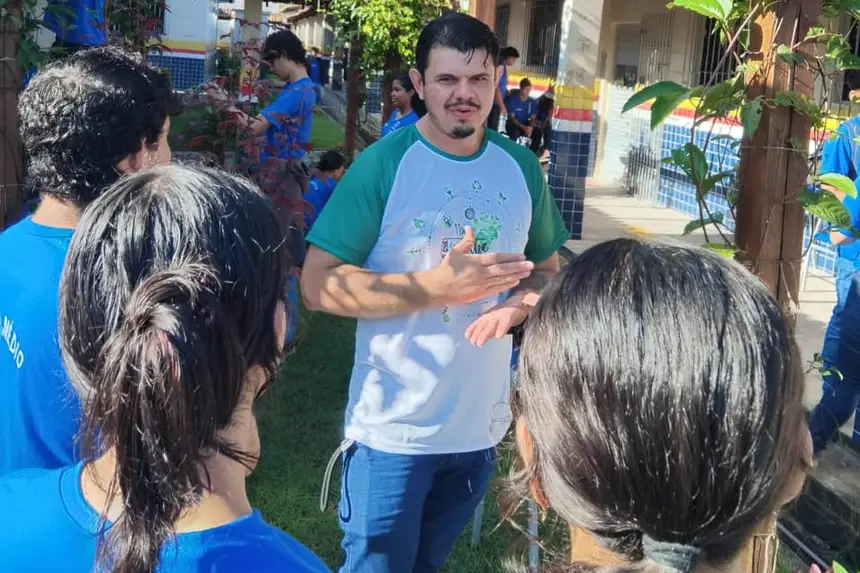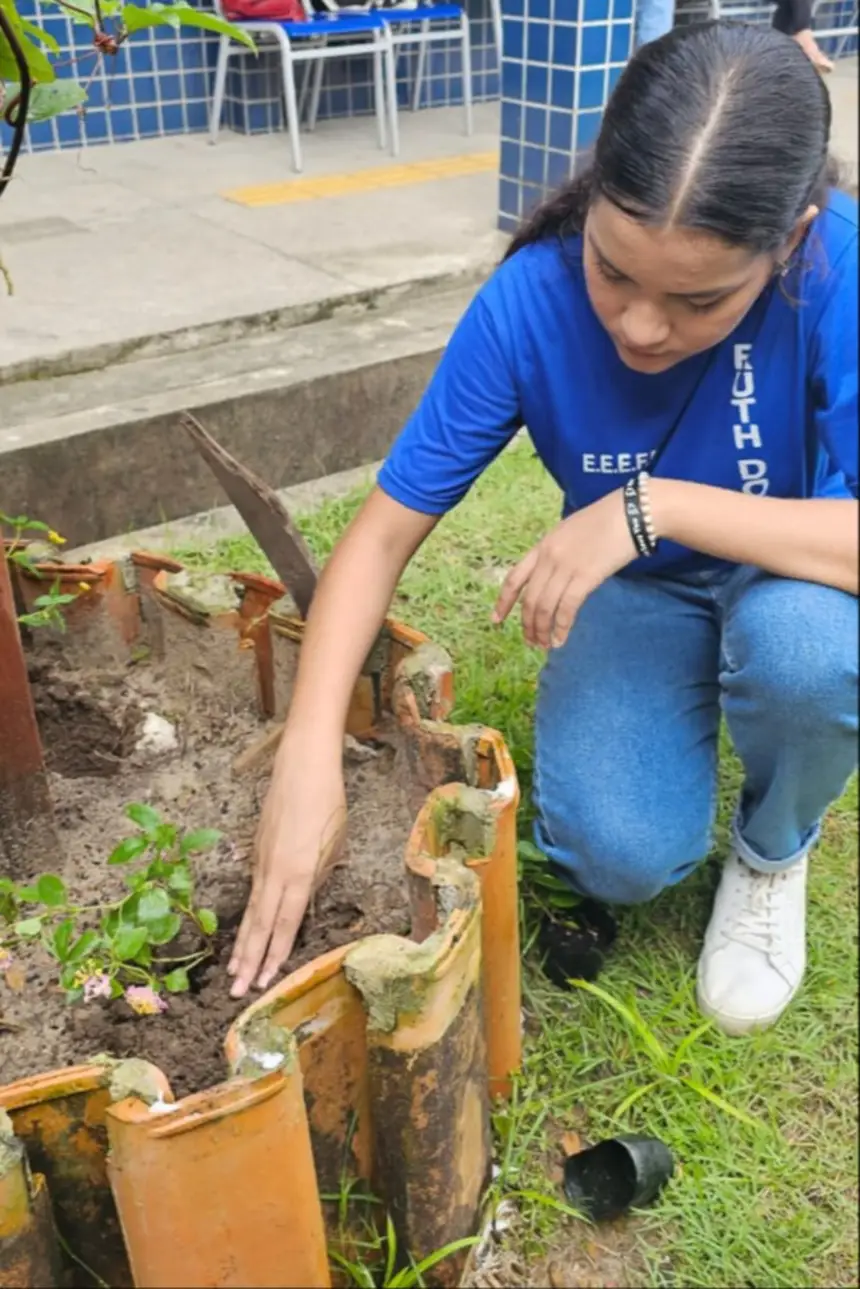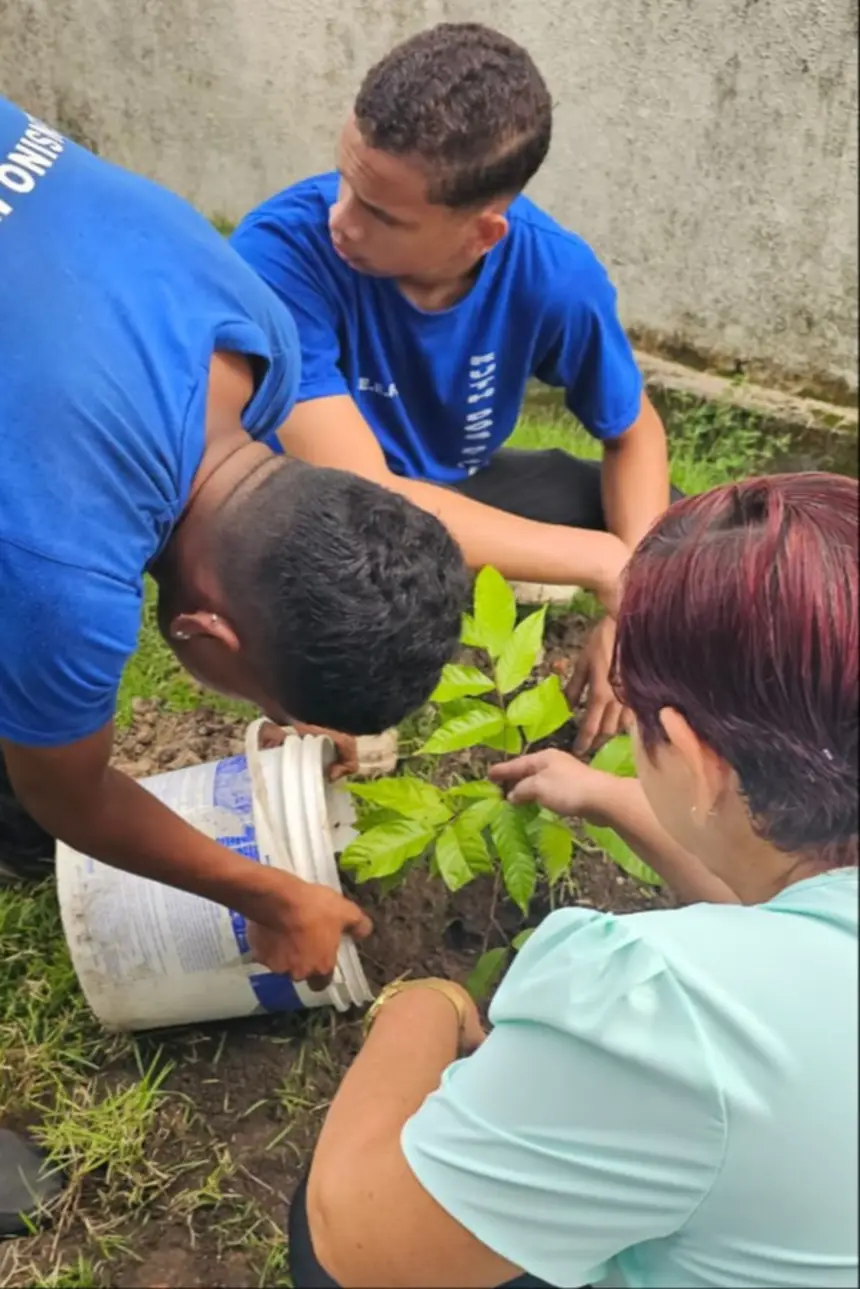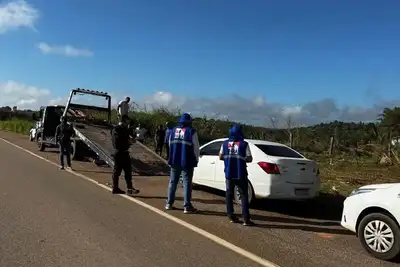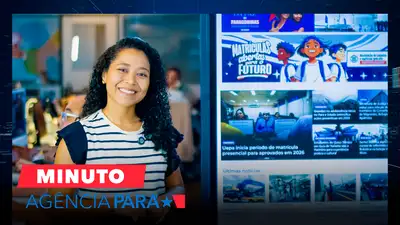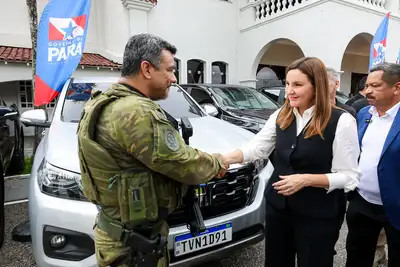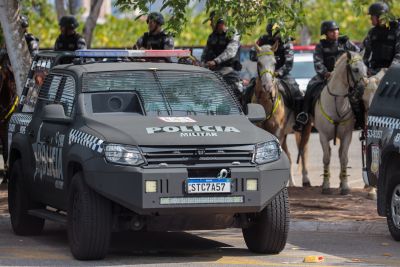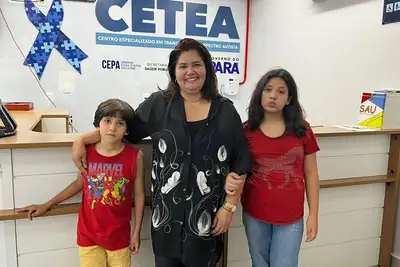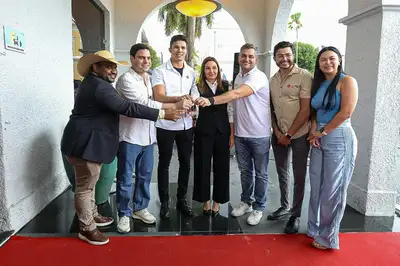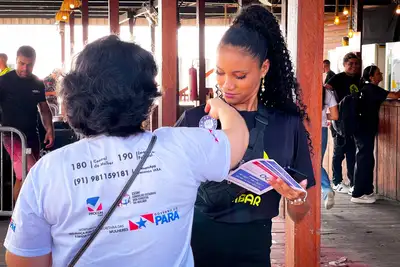In Belém, Full-Time School Promotes Sustainability, Citizenship, and Student Leadership
State School Professor Ruth dos Santos Almeida enhances teaching and learning with Environmental Education actions and the Life Project
Educating requires dedication and commitment, which is why the State Full-Time School Professor Ruth dos Santos Almeida, in the Tenoné neighborhood of Belém, has implemented innovative pedagogical practices to strengthen and enhance the teaching-learning process of students through the development of projects that unite Environmental Education and the Life Project in a practical, collaborative, and interdisciplinary way.
At the school, environmental education projects are more than just school activities; they are tools for citizenship, sustainability, and youth leadership. Students - from Elementary to High School - are involved in projects such as the School Garden, the Medicinal Garden, Composting, and Green Chemistry. These initiatives are carried out in outdoor spaces built by the students themselves.
According to the school's management, more than just isolated activities, the actions are living and continuous experiences, where popular knowledge intertwines with scientific knowledge, valuing local culture and strengthening students' autonomy.
Development of Sustainable Attitudes
Philosophy teacher Roseane Gomes believes that the projects extend beyond the school walls with community awareness. “The projects promote the appreciation of the environment and the role each citizen has in sustainability,” said the educator.
In the School Garden, for example, students cultivate vegetables naturally and learn about sustainable agriculture, nutrition, and environmental responsibility. In the Medicinal Garden, herbs such as mint, lemongrass, and lemon balm are planted and studied, many brought by the students' own families, reinforcing the bond between school and community. From the plants, students develop ecological products, such as aromatic candles made with natural essences — the result of empirical and academic research conducted by themselves.
The foundation for the success of these productions lies in the Composting and Green Chemistry projects, which provide the necessary nutrients to the soil and promote the creation of biofertilizers and natural pesticides, reducing environmental impact and teaching science in an applied manner, explains Professor Artur Silveira. “The projects are connected like a chain: one feeds the other, and together they build a more meaningful, integrated, and conscious education,” he emphasized.
Second-year high school student Sarah Moura states that participating in the initiatives is an invitation to self-knowledge. “I got involved with the Garden project, and today I think about and start to decide which academic career I should pursue. Being here makes me want to learn more and understand the impact of my choices in the world,” she shared.
Mathematics teacher Antônio Sales asserts that “the project pedagogy breaks with the logic” and shows students that “education is not limited to the classroom; it is in doing, in planting, in caring, and in transforming.”
“As a manager, I believe it is of utmost importance for the development of students, both the Life Project and in Environmental Education and PPA. The practices and research conducted in the community serve as a basis for learning. It is gratifying to see how much the students are advancing,” celebrates the school's principal, Alba Freitas.
Education Focused on Autonomy and Citizenship Awareness
State full-time schools maintain a daily schedule of 9 hours and 45 hours weekly or 7 hours daily and 35 hours weekly. The full-time schedule provides more resources for student development, aiming to form autonomous, supportive, and competent individuals. Full-time schools also ensure students receive three daily meals (lunch and two snacks).
“This is a model that greatly improves the learning of new students, ensuring greater opportunities for personal development and the realization of their life projects. It is not just about having more time at school; it is about having robust pedagogical support, with projects, clubs, and other actions that enhance the teaching process. Furthermore, full-time students develop stronger ties with the school, the teaching staff, and other students, strengthening belonging and consequently learning more,” explained Rossieli Soares, Secretary of State for Education of Pará.
For 2025, the State Department of Education (Seduc) has established 49 more units that adopted the Full-Time Teaching Program (PEI), totaling 161 schools with this pedagogical model.
In addition to the increase in the number of schools, the positive impact of this expansion is clearly visible in the growth of enrollments. In 2018, schools in the full-time modality in Pará served 6,000 students; by 2025, there was a leap to 48,000 enrollments, an eightfold increase in capacity. A result that reflects the State's commitment to providing more opportunities for students, with access to quality full-time education.
With this expansion, Pará consolidates an education model that seeks equity and excellence, ensuring that more students have access to a comprehensive educational formation that prioritizes knowledge and human development.
Environmental Education
Seduc has been offering the Environmental Education component in all stages of education, mandatory in state schools, since the first semester of 2024. This component can be adopted by municipalities, based on the Environmental Education, Sustainability, and Climate Policy.
Seduc emphasizes that the environmental content makes Pará a pioneer in guaranteeing a mandatory curricular component of sustainability, which encourages student participation and engagement in discussions about fundamental agendas in the context of Pará, such as hosting the United Nations Conference on Climate Change (COP 30) in 2025.


